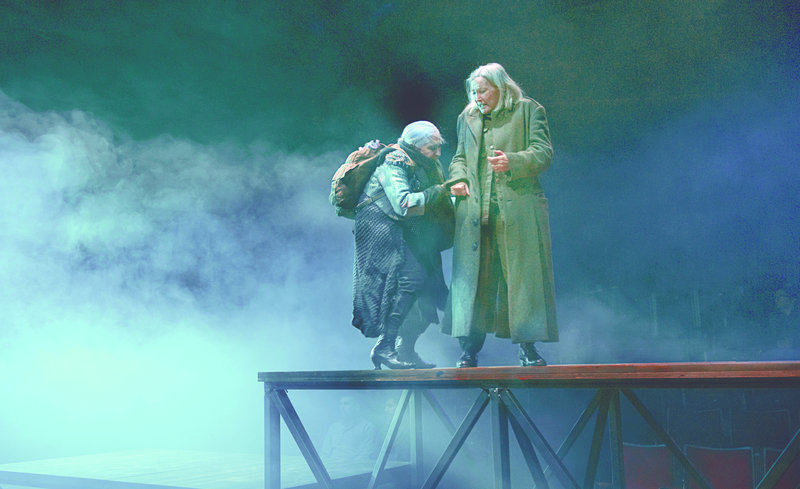Queen Lear?
Actress Núria Espert plays the lead (male) role in the Shakespeare tragedy under the direction of Lluís Pascual in the Lliure theatre until February 22
It is hardly a surprise that Núria Espert had never imagined she would play King Lear. However, after reading through the script three times, she decided to accept Lluís Pasqual's proposal for her to play one of Shakespeare's main male protagonists. Last month, King Lear opened in Montjuïc's Lliure theatre with a cast of 25 and Espert in the main role, under Pasqual's direction.
The theatre director understands the play, which can be seen until February 22, as a journey through pain. It is highly unlikely that the play will go on tour, although the success of its short run at the Lliure could see a repeat in the 2015/16 season.
The play is a key Shakespeare tragedy, which has led critics such as Harold Bloom to recommend it never be staged, because productions of the play always fall short of the expectations created by the text. Others, however, such as Pasqual, believe the opposite, that this Shakespeare piece needs to be performed to capture its dramatic energy.
In his version, Pasqual has opted to portray a type of pain that is a million miles away from “the weepiness” of 19th century romanticism. The play's music, according to Pasqual, is closer to Bach than Beethoven.
What is true of any version of Lear, however, is that love is shown not to be enough to ensure human coexistence. Pasqual, who admits that taking on the play meant giving up elements implicit in Shakespeare's verse, does not come from any specific angle: he allows the epic story to breathe and make its own way towards a sort of “apocalypse without religion”.
Interpretation is the director's prerogative, as Shakespeare provided no comment on his plays: “He never judges his characters,” says Pasqual, who argues that that explains why there is so much mystery surrounding the playwright's work, and King Lear is a good example. Pasqual's version, with cuts to avoid unnecessary repetition, comes in at two and a half hours, with a 15-minute intermission.
In an unusual departure, Espert plays Lear. Pasqual justifies the decision to cast a woman in leading male role with the argument that he wanted the best actor for the job and Espert fit the bill. Rosa Maria Sardà, who has worked regularly with Pasqual and Espert claims that, if for years women's roles have been played by men without anyone turning a hair, then no one should be surprised this time.
This production also sees Espert returning to performing in Catalan after a number of successful visits with plays in Spanish, such as La violación de Lucrecia (Lliure, 2012) and La casa de Bernarda Alba (TNC, 2009).

